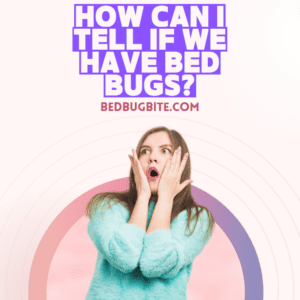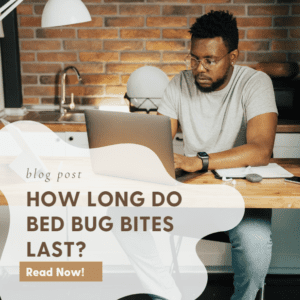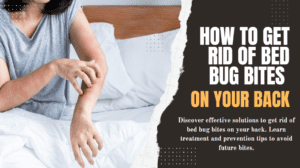Is Tea Tree Oil an Effective Treatment for Bed Bugs? The first question that is likely to pop up after noticing a bedbug infestation is ‘what are the effective home remedies?” There are many reasons why people would want to treat cases of invading bugs on their own. Cost of certain treatment options or even dangerous repercussions of using certain chemicals could be amongst such reasons. It is unfortunate that cases of bedbugs are usually tough ones and are hardly eliminated by such treatments.
Once upon a time, they were almost completely eradicated in developed countries but they turned out to develop high resistance to insecticides and even increased more in population. The fact that they are tiny, can fit into tiny spaces and feed exclusively on blood makes a lot of DIY remedies for them less effective.
Tea tree oil has earned a reputation as one of the most popular remedy for not only bedbugs but insects generally. It is not just a repellant but also a killer of bugs. Don’t be surprise if it is the first remedy that is suggested to you.
What is tea tree oil then? Does it really live up to this reputation of “the number one killer of bugs”?
What is Tea Tree Oil?
Tea tree oil is a natural tree oil extract from the popular Melaleuca alternifolia plant, native to Australia. It has a pleasant smell like that of camphor and is made up of more than 100 components. It is not edible as it is toxic when consumed yet its oil has been proven to contain strong antiviral, antifungal and antibacterial properties. In addition to this, researches are currently underway to determine its effectiveness as topical antimicrobial treatment. It is however useful in treatment skin conditions like acne and insect bites. You will find it readily available in health and pharmaceutical stores.
How Does it Work against Insects?
The importance of tea tree oil includes: using it both as insect repellants and as insecticides to combat different types of pests such as bed bugs, ants, mosquitoes and other flying, biting and stinging insects. It is also useful in killing lice and other parasites. It is a solvent with the ability to penetrate the insect’s exoskeleton once it comes in contact with the insects while at the same time suffocating them. As a result, it is a home remedy that has formed an alternative to chemical repellents used on pets, humans and even for gardens.
Will Tea Tree Oil Eliminate Bed Bugs?
Is Tea Tree Oil an Effective Treatment for Bed Bugs? Tea tree oil works effectively for eliminating bed bugs however there is a recommended method of usage. Diluting 20 drops of the oil in a plastic spray bottle before spraying over the bed sheets is a simple approach that works but unfortunately it is not very effective. Bed bugs are ultimately killed when they come in direct contact with undiluted tea tree oil however, it us harmful to humans. Also, lots of people are allergic to the oil and would have a skin reaction once they come in contact with it.
Again, bedbugs seek coverage in tiny cracks, holes and crevices within nearby furniture, picture frames, clutters, electric outlets etc. Spraying tea tree oil might only stain the surrounding or even create the danger of electric shock without actually eliminating the infestation.
Are There Better Options?
Of course, there are number of Do-it-yourself remedies available for killing and repelling insects. A lot of such remedies that have been effective on other insect species have been suggested for bedbug treatment as well. You should however note that the mode and nature of bedbug infestation is usually different from that of other insects like ants, cockroaches and termites. Hence, these methods and remedies might prove abortive.
For instance, diatomaceous soil is a nontoxic remedy used in controlling and eradicating cockroaches and other insects. It works by absorbing the waxy outer layer that forms the exoskeleton of insects and also by lacerating their shells and eggs as they crawl by leading to dehydration and ultimately death. When they ingest the DE, it also destroys their digestive system leading to death. However, you might feel uncomfortable spreading DE on an around your mattress as it would feel like spreading sand.
Using a Vacuum Cleaner or Steam Cleaner
This method may not sound quite effective but you should remember that bedbugs do not live in hives or colonies like most other insects. Hence, eliminating the female breeds and their eggs may take just a. Simple procedure of sucking them up. Emphasis would always be laid on vacuuming your mattress and the surrounding. It may not totally eliminate all the bugs, but it will sure reduce their numbers. After vacuuming, make sure you dispose the bag or canister somewhere far from the home to avoid them escaping and causing more menace. Steaming method however seems to be note effective as bedbugs cannot withstand very high temperatures. These methods may not bring ultimate solutions to your bedbug infestation issues but they will surely reduce the severity of the case.
Using Your Dryer
While this method does not have an absolute solution to bedbug infestation, it does have some effect on their population. Place your bedsheets and linen into the dryer setting it to the highest temperature for at least 30 minutes. The heat from the dryer is meant to kill all the eggs, nymphs and the adults but it is unfortunate that the heat from the dryer can only kill the bedbugs trapped inside the linen. What about those hiding at other strategic points such as the bed frame? There us no way the dryer could eliminate them.
Hiring a Professional
If undetected, bedbugs can pose a serious danger. They can form resistance to insecticides and have the ability to his in small spaces due to the nature of their body size and shape. Patronizing the sizes of a professional exterminator to inspect and eliminate the bedbugs could be the only sure solution. With their services, the infestation would be fully assessed and the best method of elimination would be determined.
You should also have it in mind that if you and your home are infested with bedbugs, high chances are that you could spread it to other homes maybe when you unknowingly carry them along to work, gym centers, social events etc. It is not wise to rely only on home remedies or to even resort to certain dangerous chemicals as you could be exposed to their toxicity. Read More…




